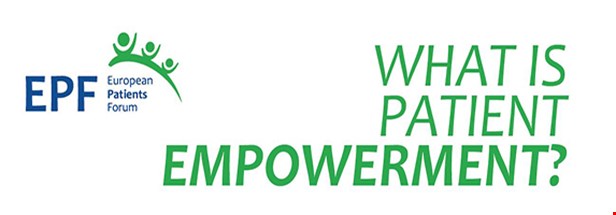Patient Empowerment

Patient empowerment is one of the key elements of patient-centred healthcare. It can be seen as both a pre-requisite for and an outcome of patient-centred healthcare – a goal as well as a process.
Patient empowerment is defined in multiple ways depending on the context and objectives. EPF defines it as a “process that helps people gain control over their own lives and increases their capacity to act on issues that they themselves define as important”. We also see it as a relational concept where the environment a patient finds themselves in plays a critical role. Aspects of empowerment include health literacy, shared decision-making and self-management.
Patients with chronic conditions are often referred to as the most under-used resource in the health system. Patient-centred care models have demonstrated better quality of care as well as potential long-term cost-efficiencies. Still, too many patients are struggling to get the support they need to become equal partners in care.
To make real progress, EPF contucted a major thematic campaign on empowerment in 2015-16. We called on policymakers to make patient empowerment a priority in health policy, starting with the development of an EU-wide strategy and action plan. As a result, EPF delivered two policy instruments – the Charter on Patient Empowerment and the Roadmap for Action – that will help us to take patient empowerment to the next level.
